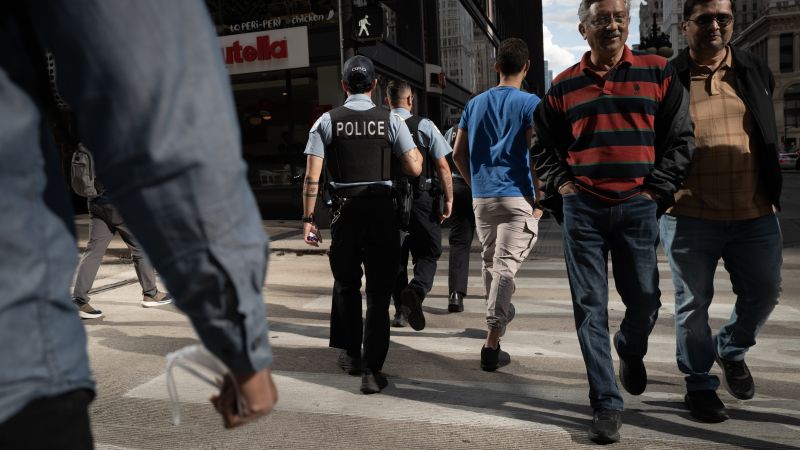
UPDATE: Chicago is preparing for a possible deployment of the National Guard, with reports indicating troops could be ready by Friday, September 9, 2023. As tensions escalate, local leaders scramble to respond amid conflicting statements from federal officials.
Illinois Governor JB Pritzker revealed on Wednesday that while the state has not received formal notification, information suggests that National Guard forces might be mobilized as early as this weekend. “We’re hearing that the National Guard will be in place by Friday and ready for action on Saturday,” he stated, heightening concerns among residents.
The political landscape is murky, as President Donald Trump has made critical comments regarding Chicago’s approach to crime, yet his administration has not clarified the exact timeline or purpose of any potential troop deployment. Vice President JD Vance contradicted earlier assertions, claiming there are “no immediate plans” to send soldiers to the city, creating further confusion.
Local politicians are actively working to resist the deployment. Pritzker indicated that if troops are activated, legal action would follow: “We absolutely will go into court,” he declared. This statement reflects Illinois’s history of challenging federal actions, including recent lawsuits against Trump’s administration over immigration policies.
Mayor Brandon Johnson, a vocal critic of the proposed military presence, issued an executive order directing the Chicago Police Department not to cooperate with federal law enforcement. “No CPD personnel shall be assigned to joint law enforcement patrols,” Johnson emphasized, asserting the city’s commitment to protecting residents’ rights.
As community leaders brace for potential unrest, there are growing fears surrounding the timing of the deployment, especially in light of the upcoming Mexican Independence Day celebrations. Pritzker expressed concerns that federal enforcement could disrupt these cultural events, stating, “The terror and cruelty is the point, not the safety of anyone living here.”
In response, the Chicago Teachers Union has begun distributing flyers to families, educating them about their legal rights during potential law enforcement encounters. The flyers outline key rights, including the right to remain silent and not consent to searches, aiming to empower residents ahead of any action.
Community organizers are also preparing for the celebrations. Vicky Lugo, an organizer of the Mexican Independence Day Parade, confirmed that events will proceed as planned, despite fears of federal intervention. “We are not worried, but obviously we are taking precautions,” she said, emphasizing the importance of cultural expression amid uncertainty.
As the situation evolves, residents are urged to remain vigilant and document any interactions with Immigration and Customs Enforcement (ICE) agents. Pritzker encouraged the community to record any such activity to ensure accountability and protect their rights.
With the potential for National Guard troops to be deployed looming, Chicago stands at a crossroads, balancing the need for public safety with the fundamental rights of its citizens. The city’s leaders are working diligently to navigate this complex situation, but as of now, the official word from the Trump administration remains unclear.
As developments continue to unfold, residents and officials alike are left to grapple with the implications of a military presence in their neighborhoods. The coming days will be critical in determining the next steps for Chicago and its community members.




